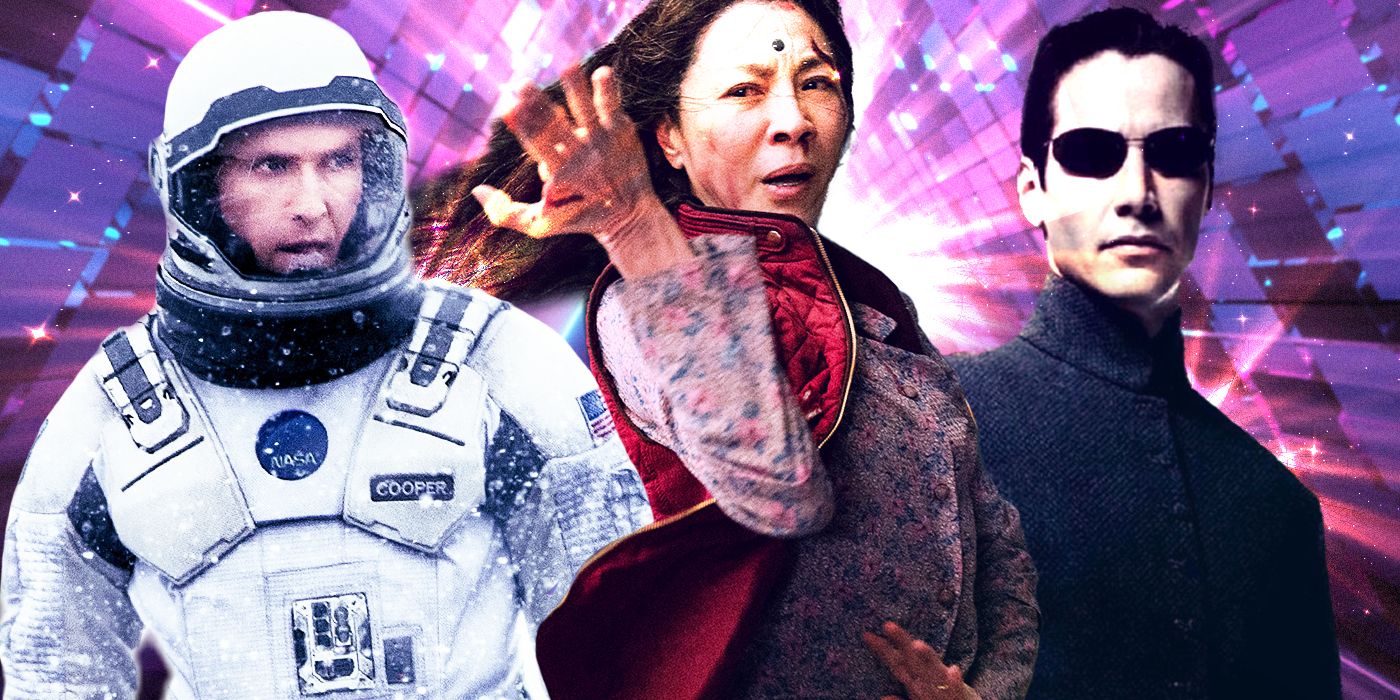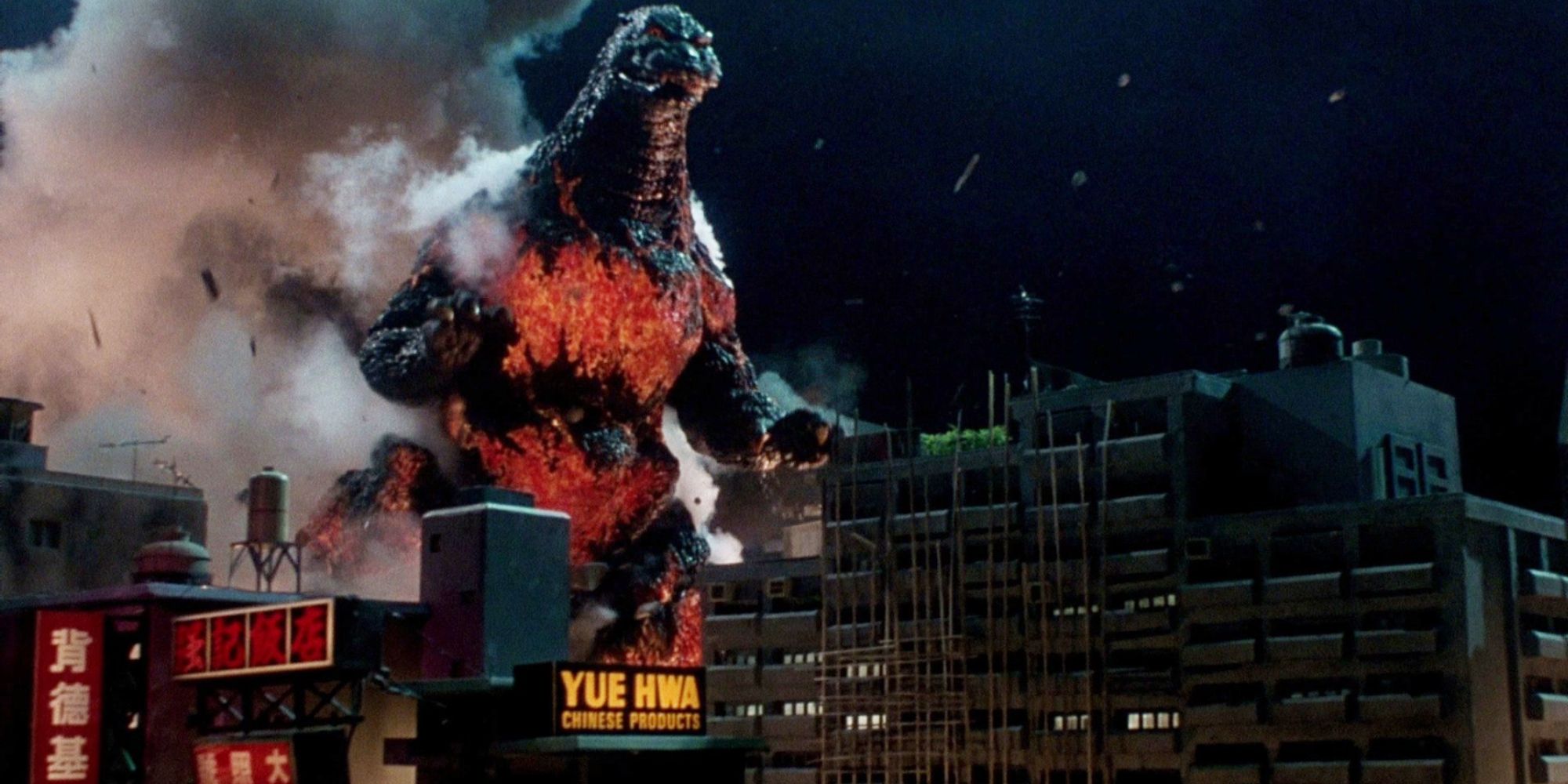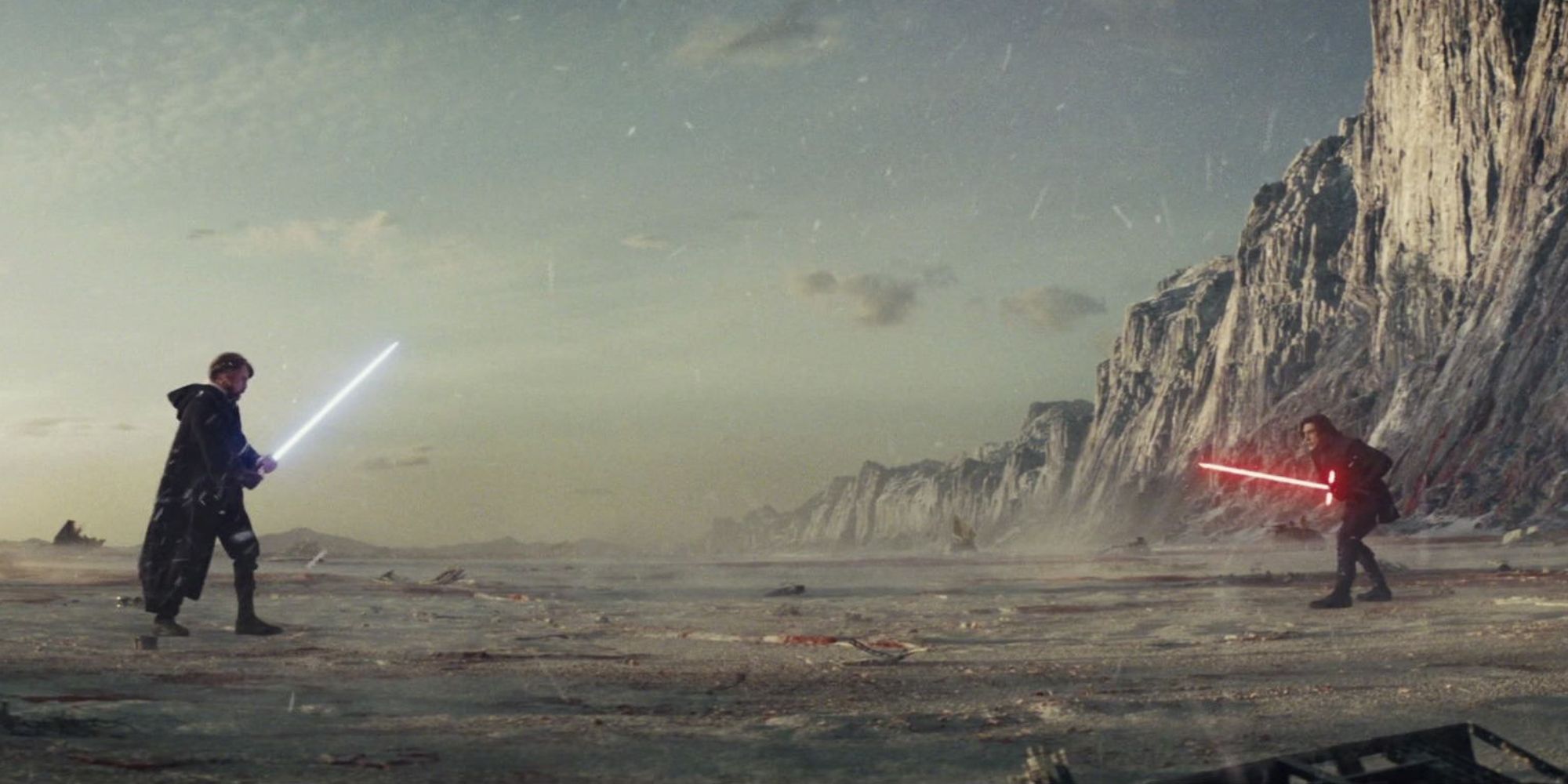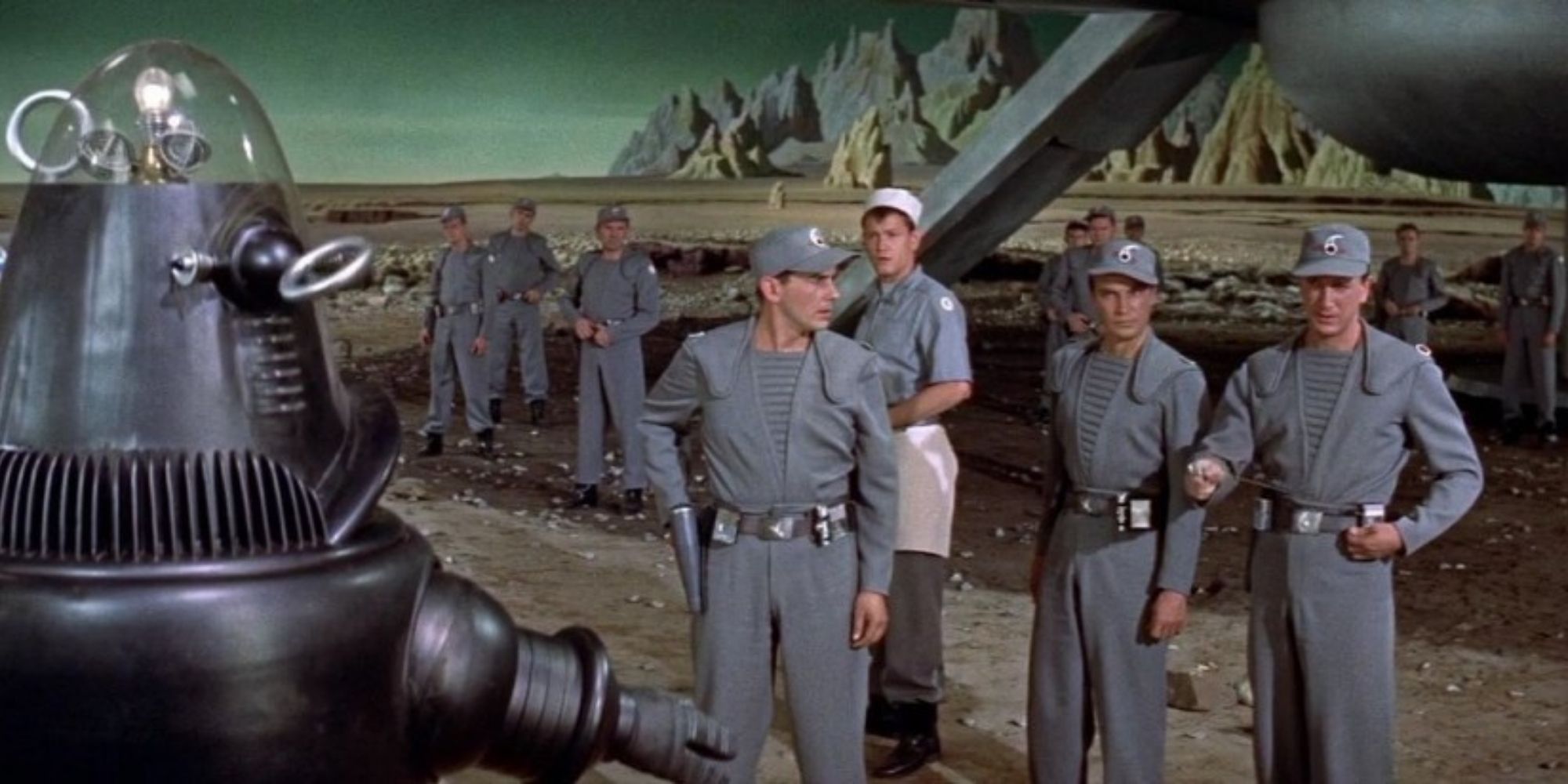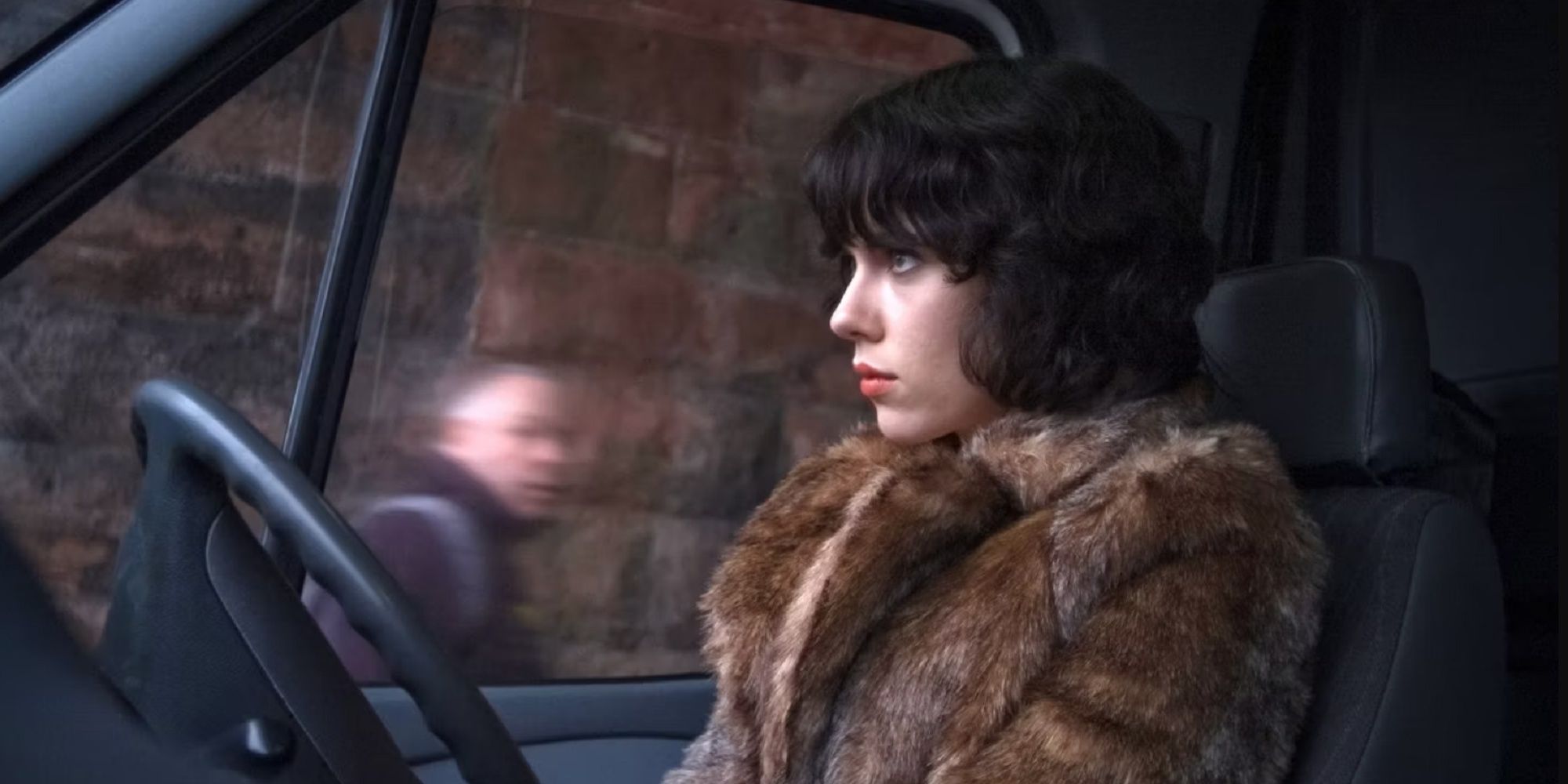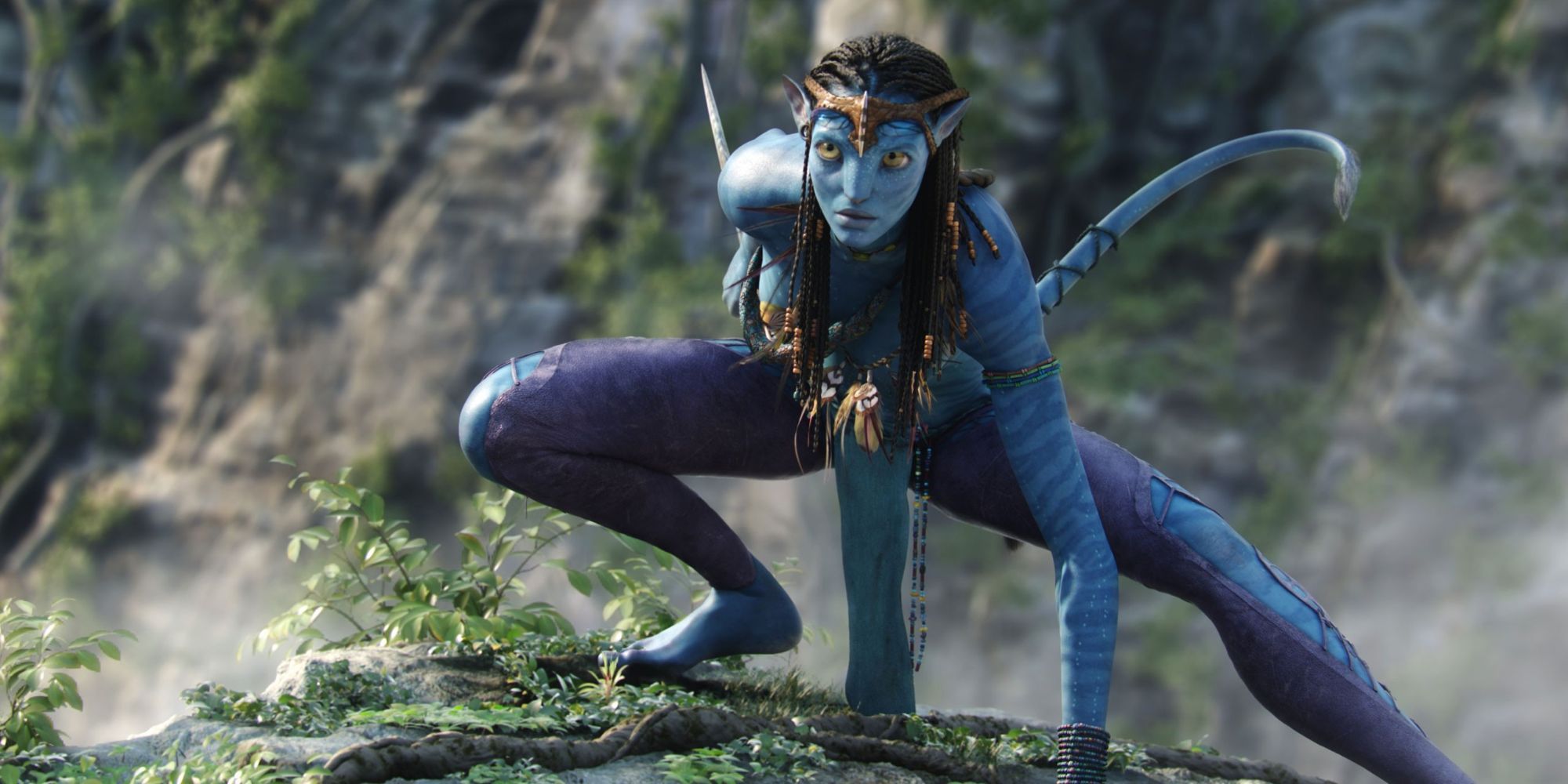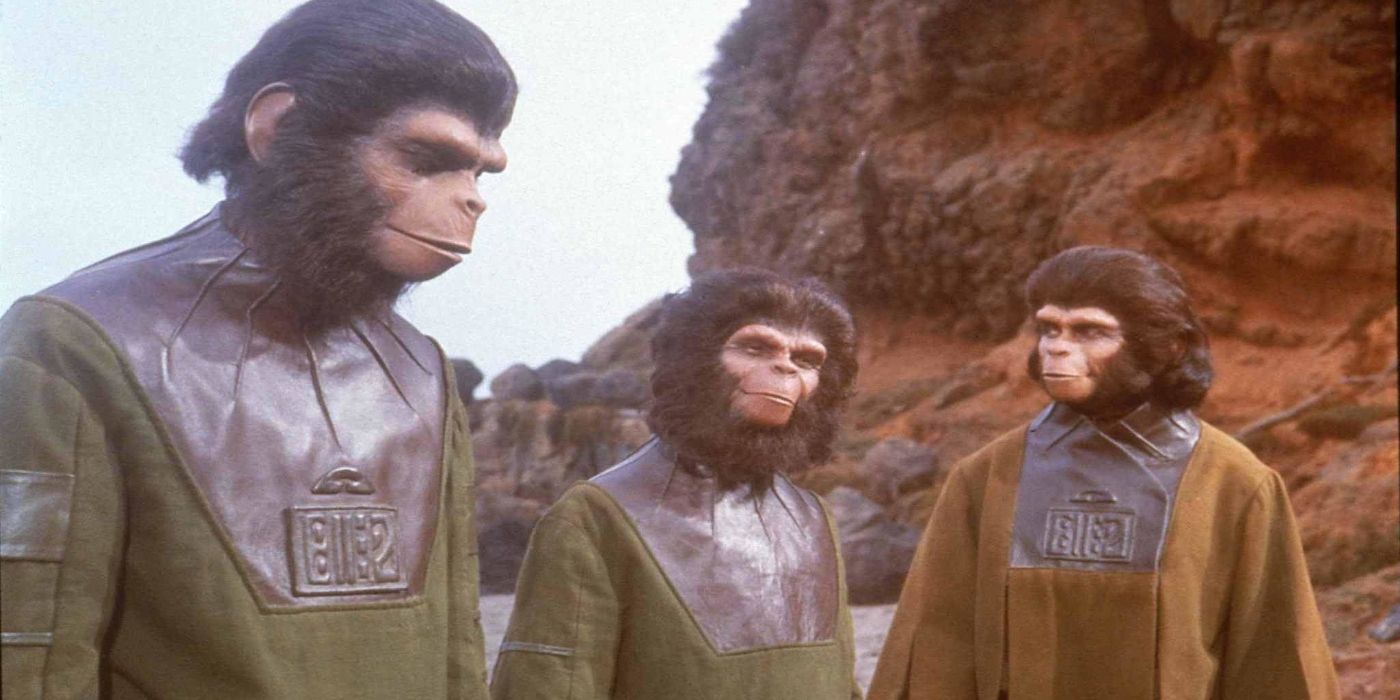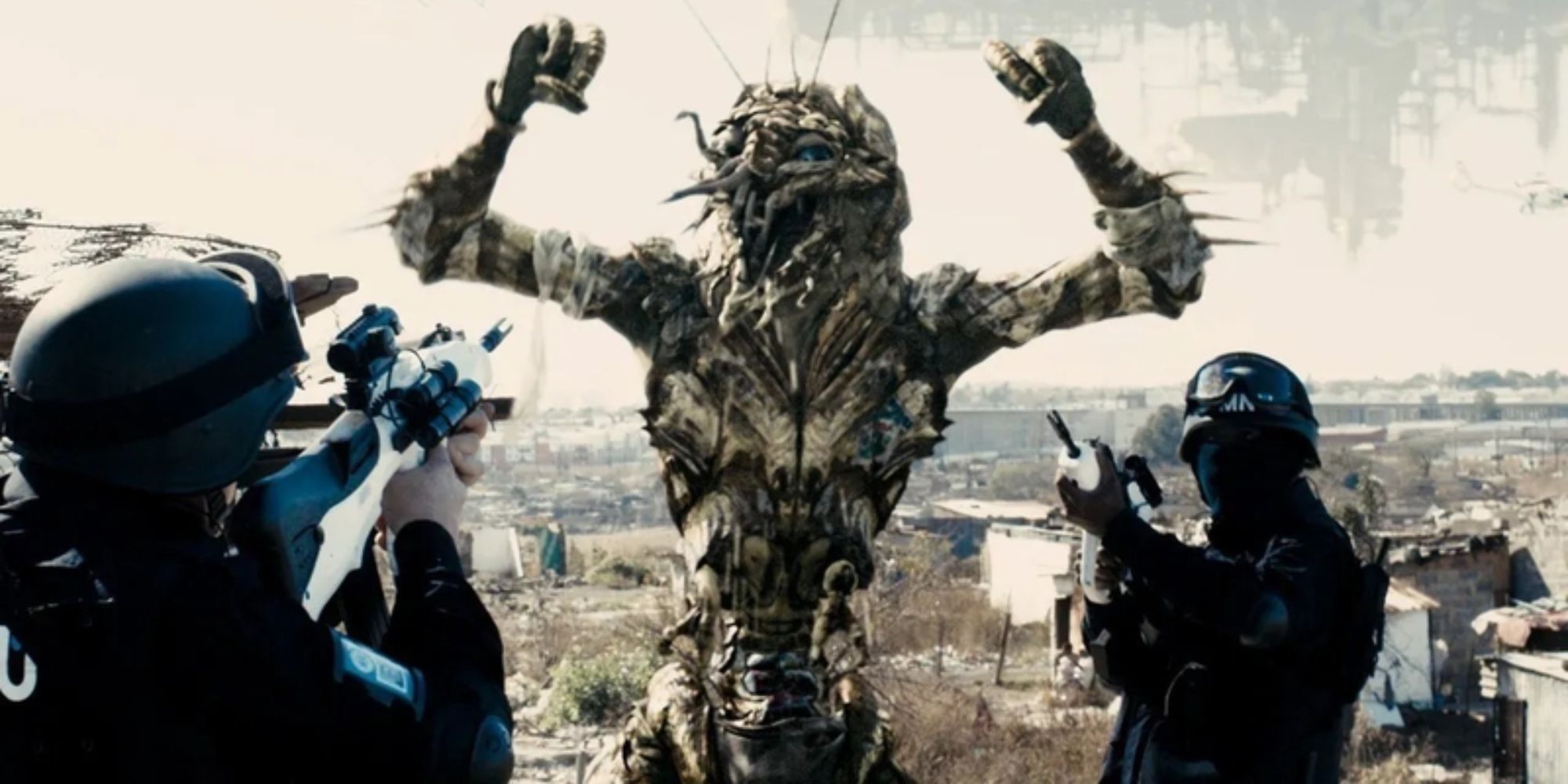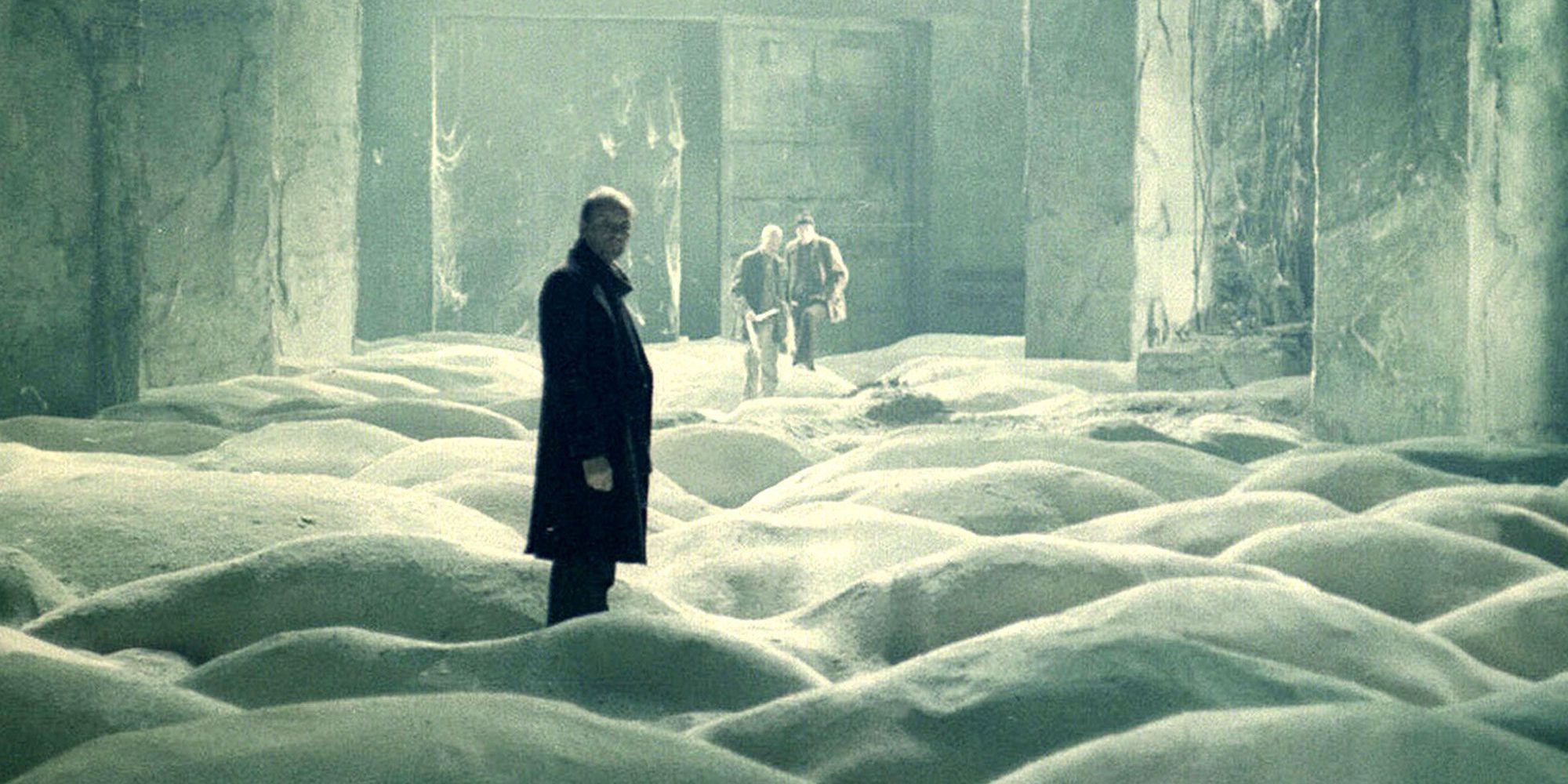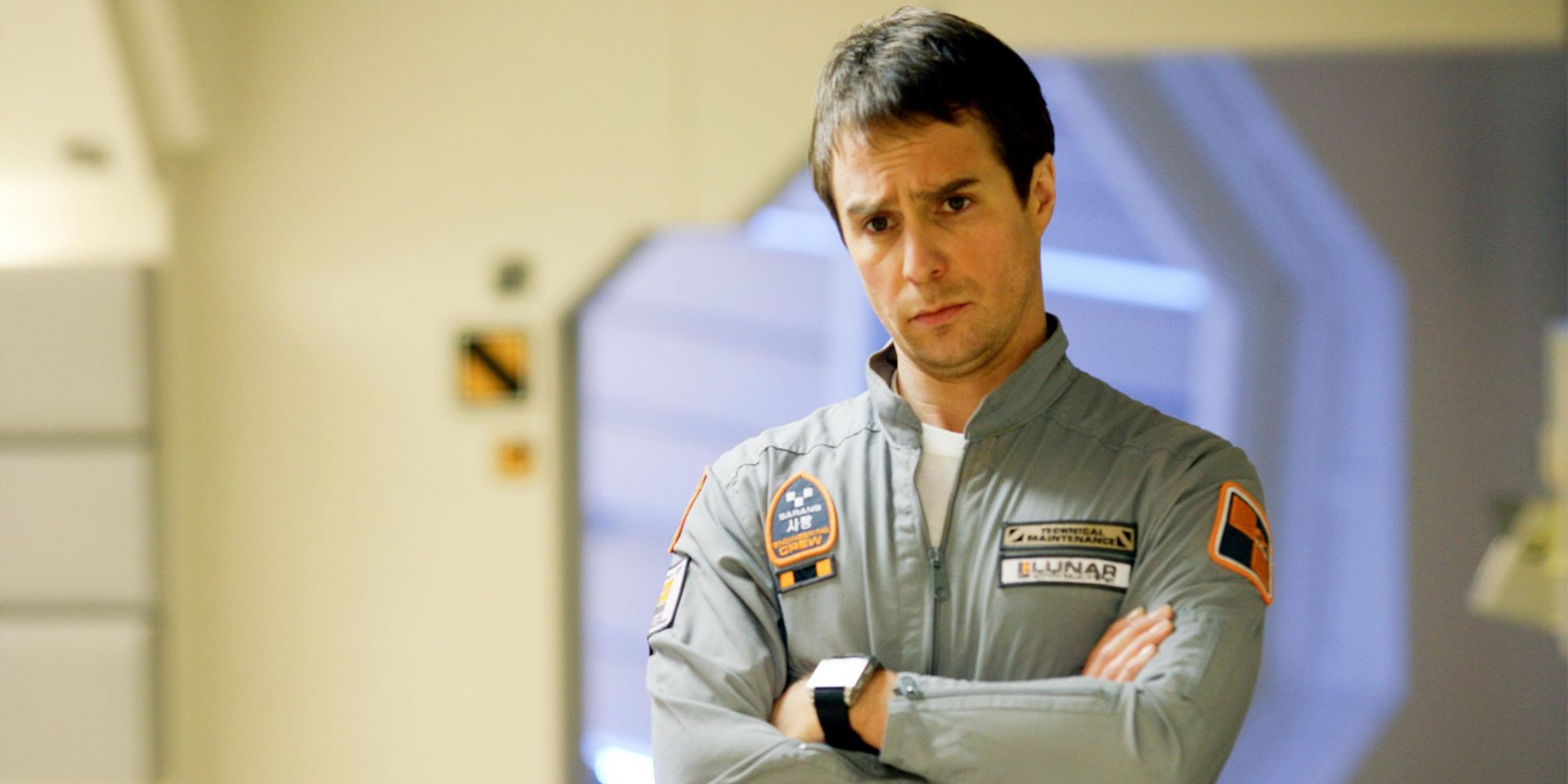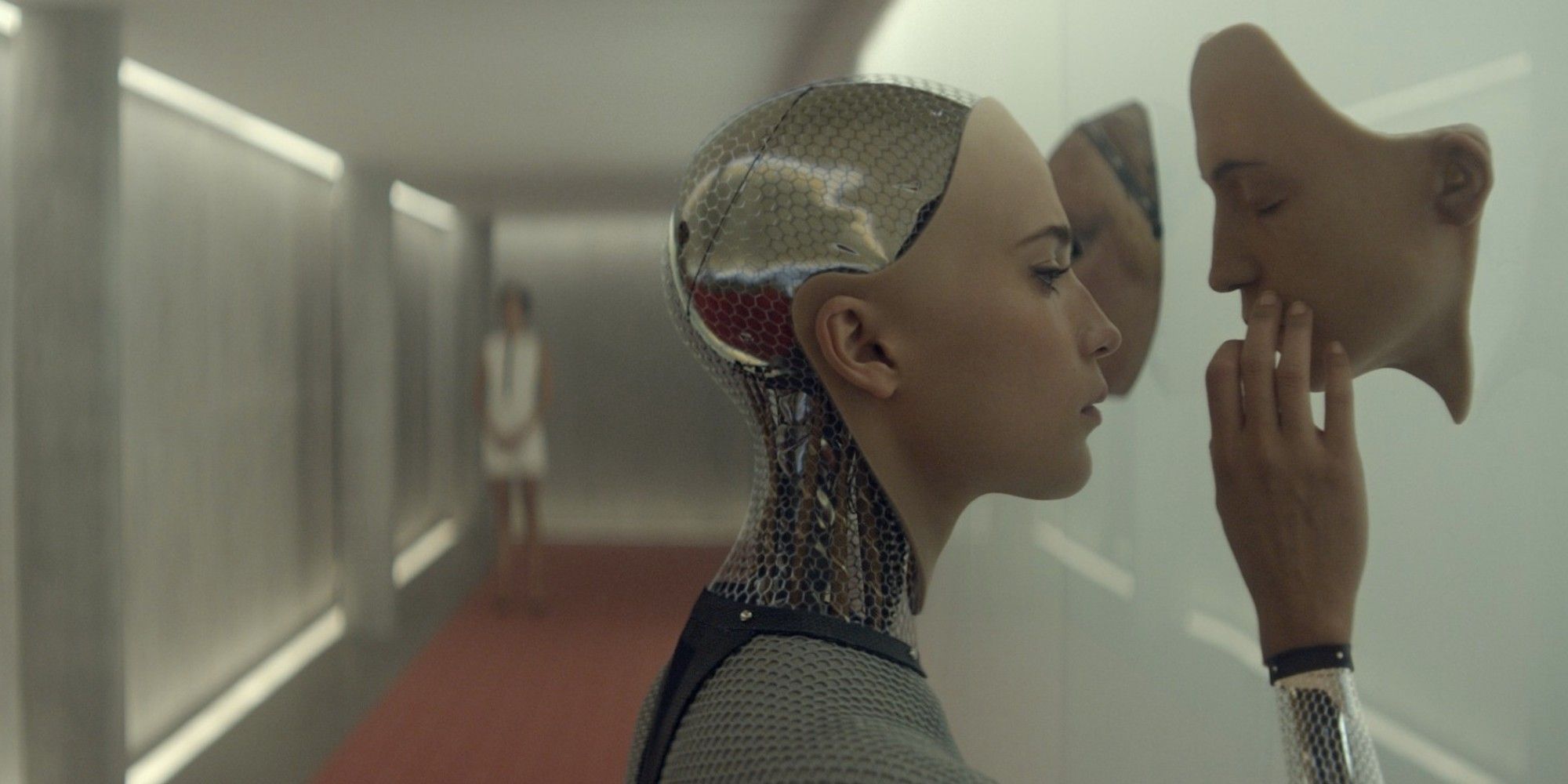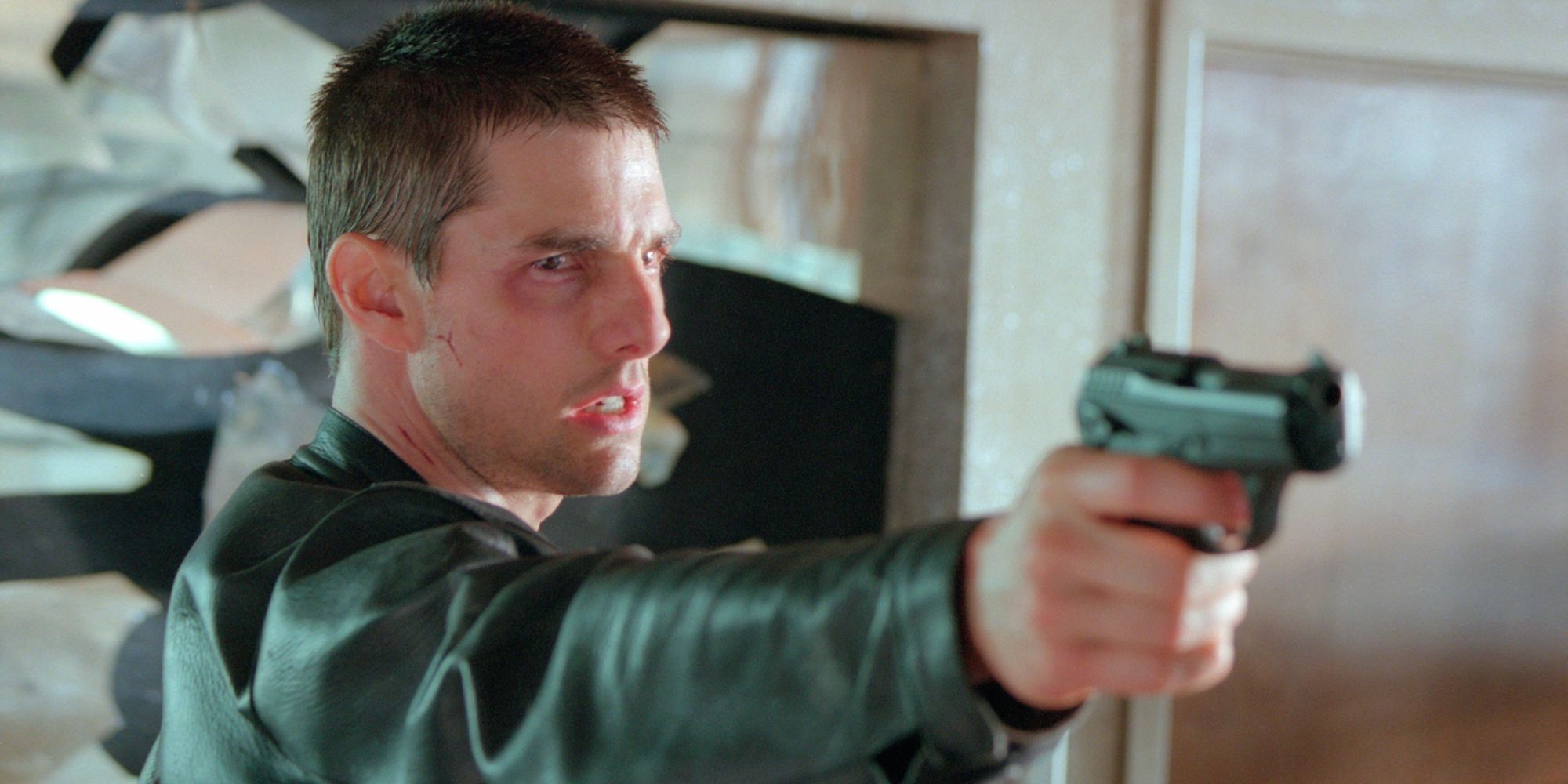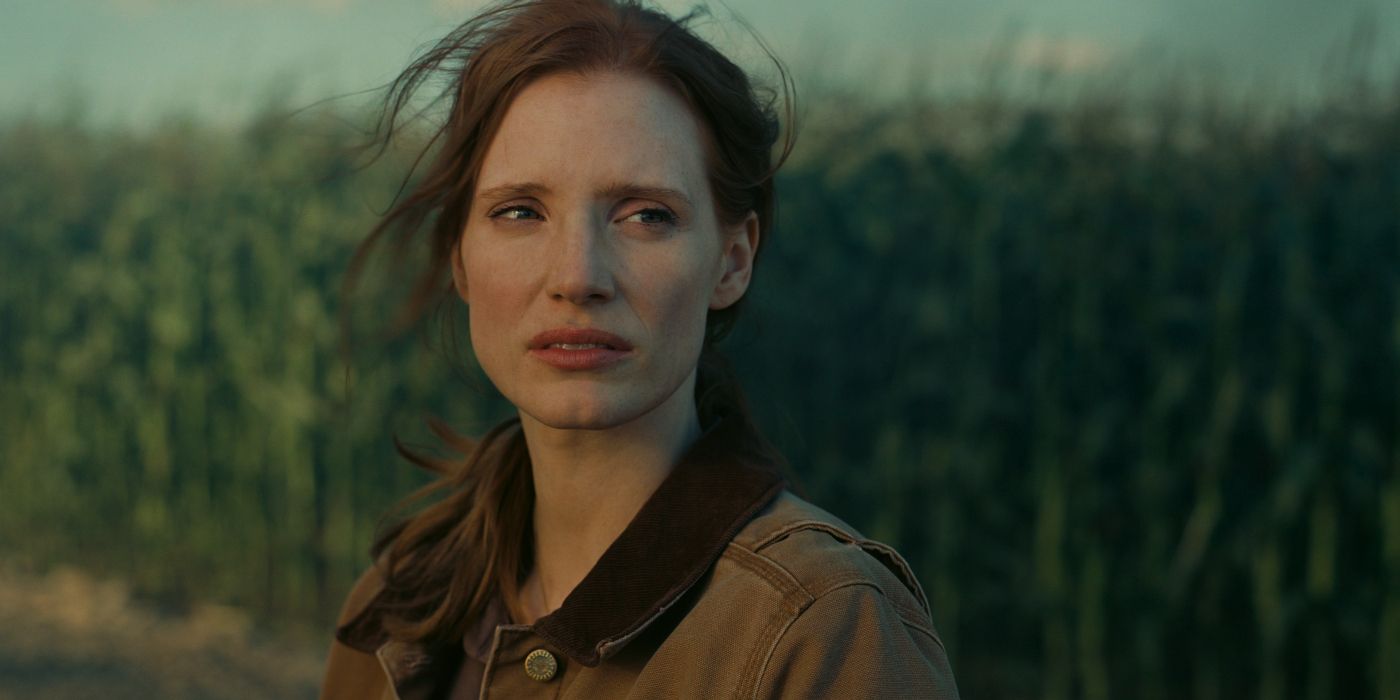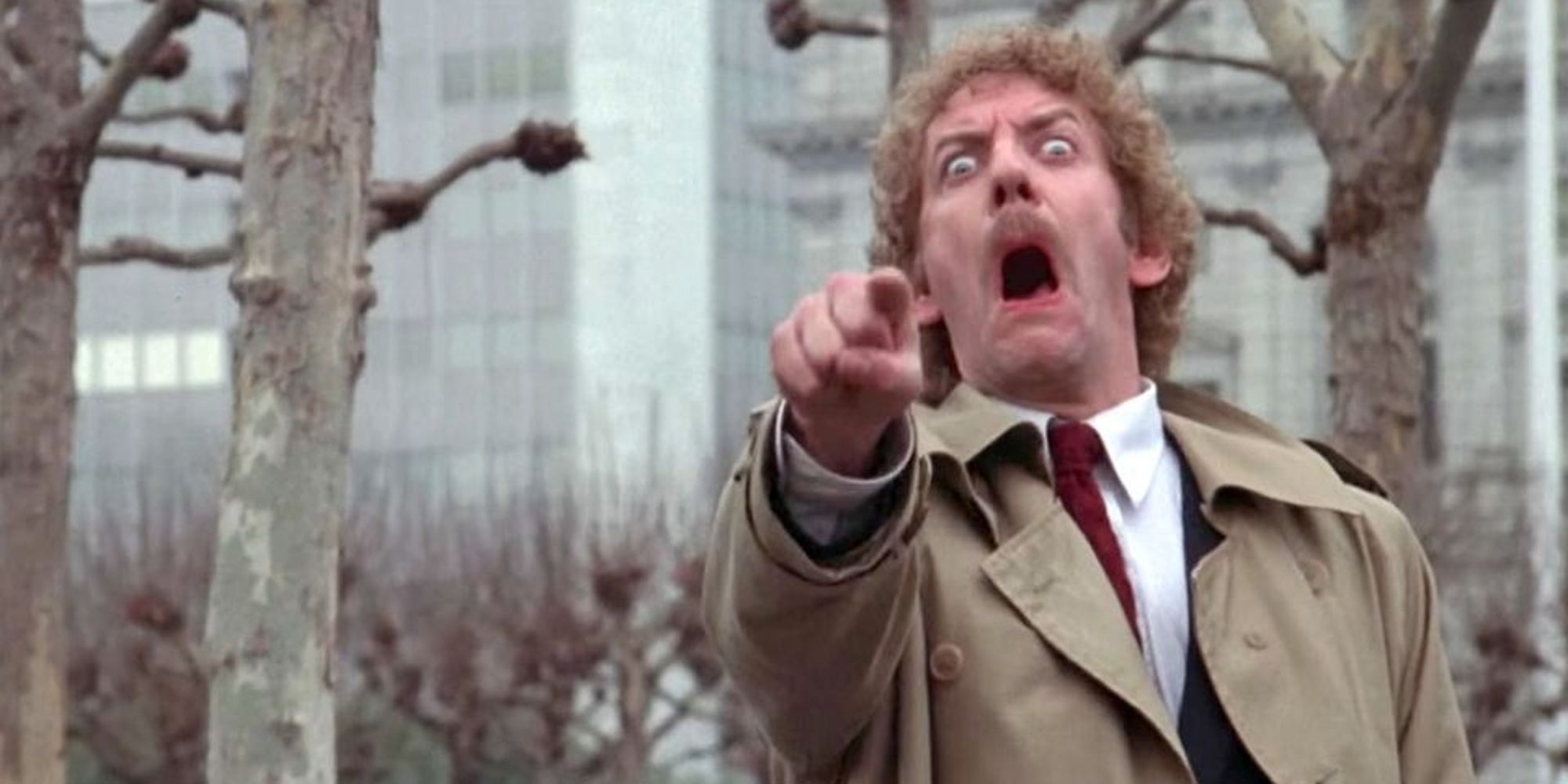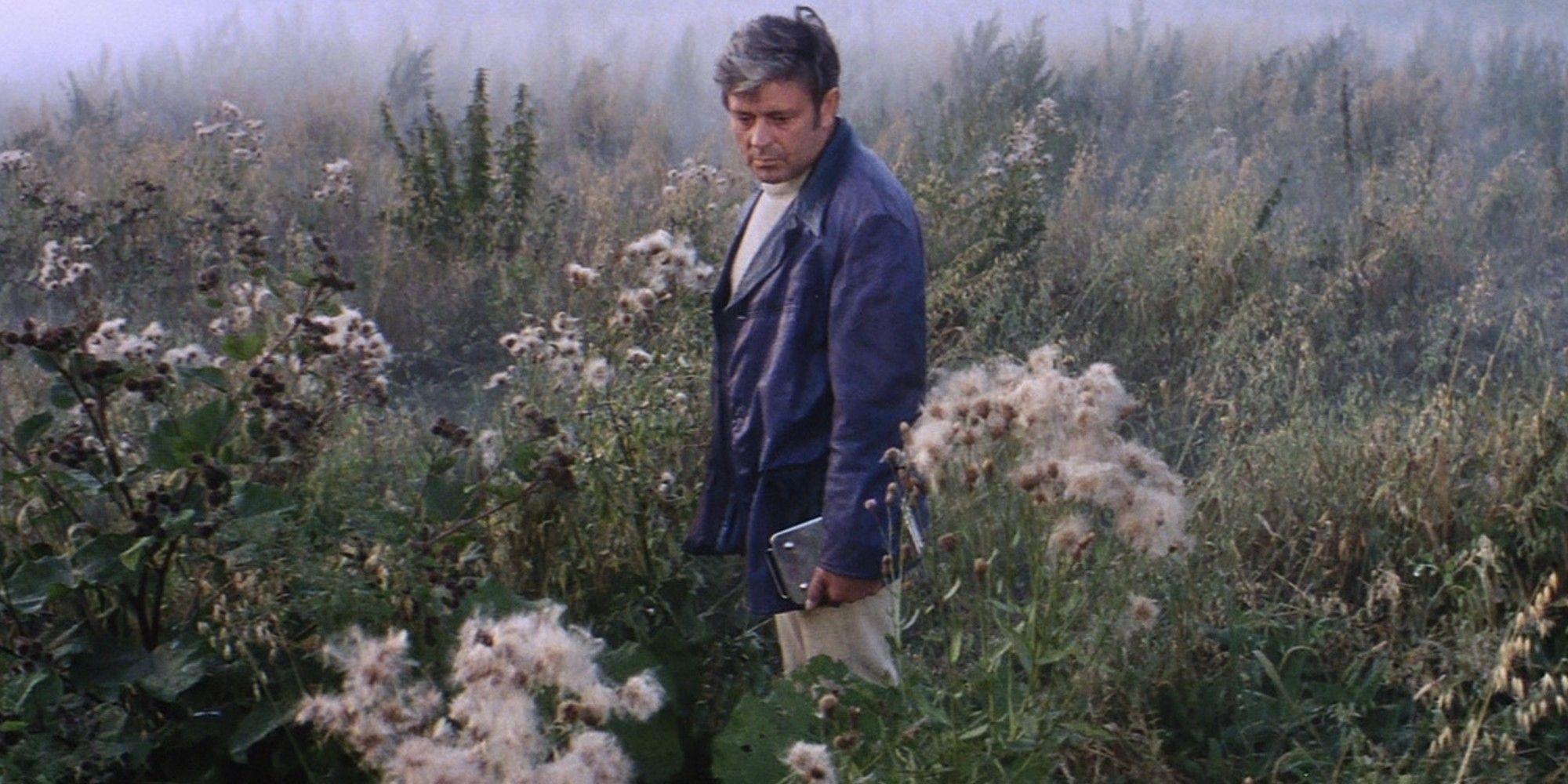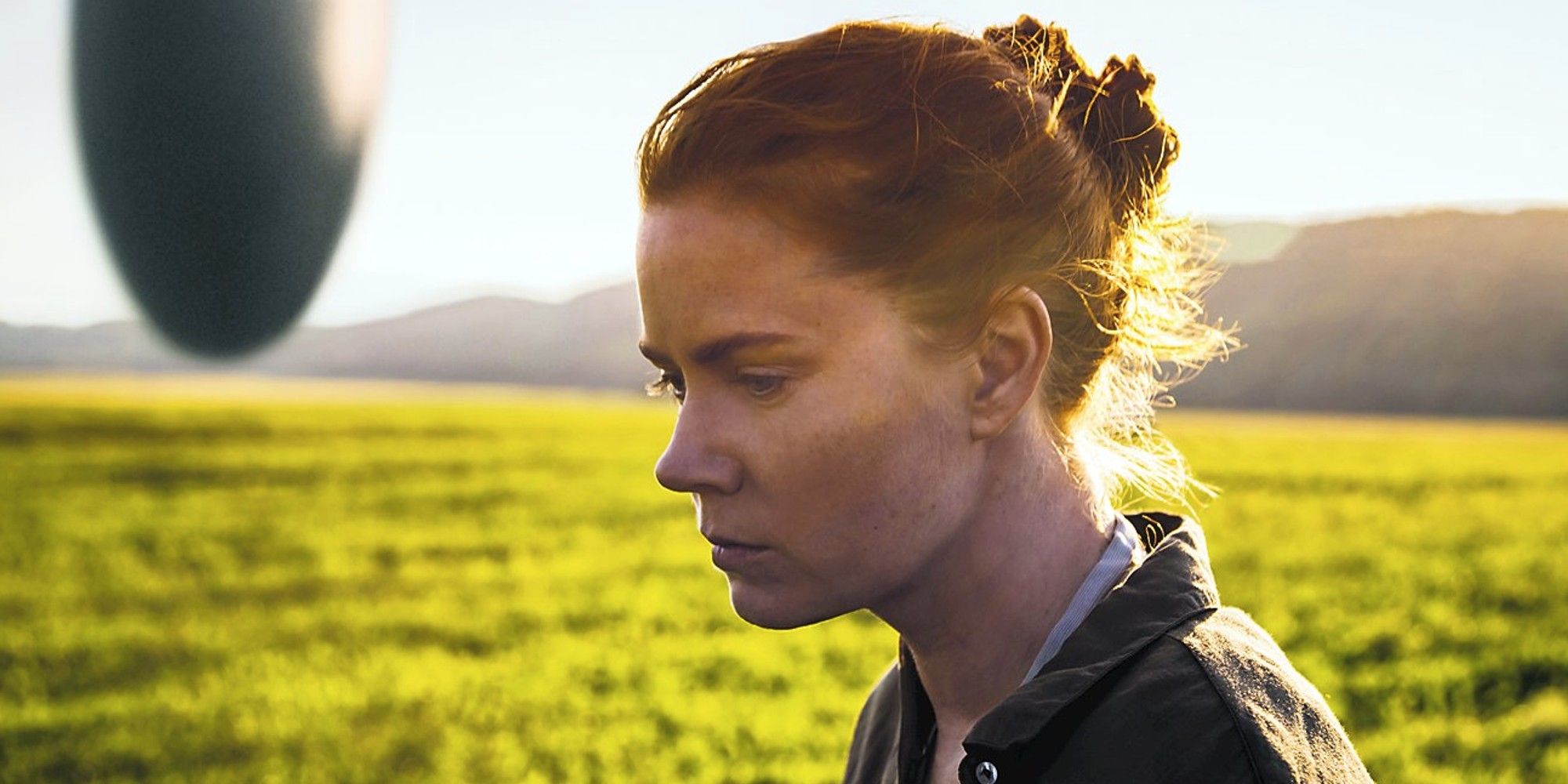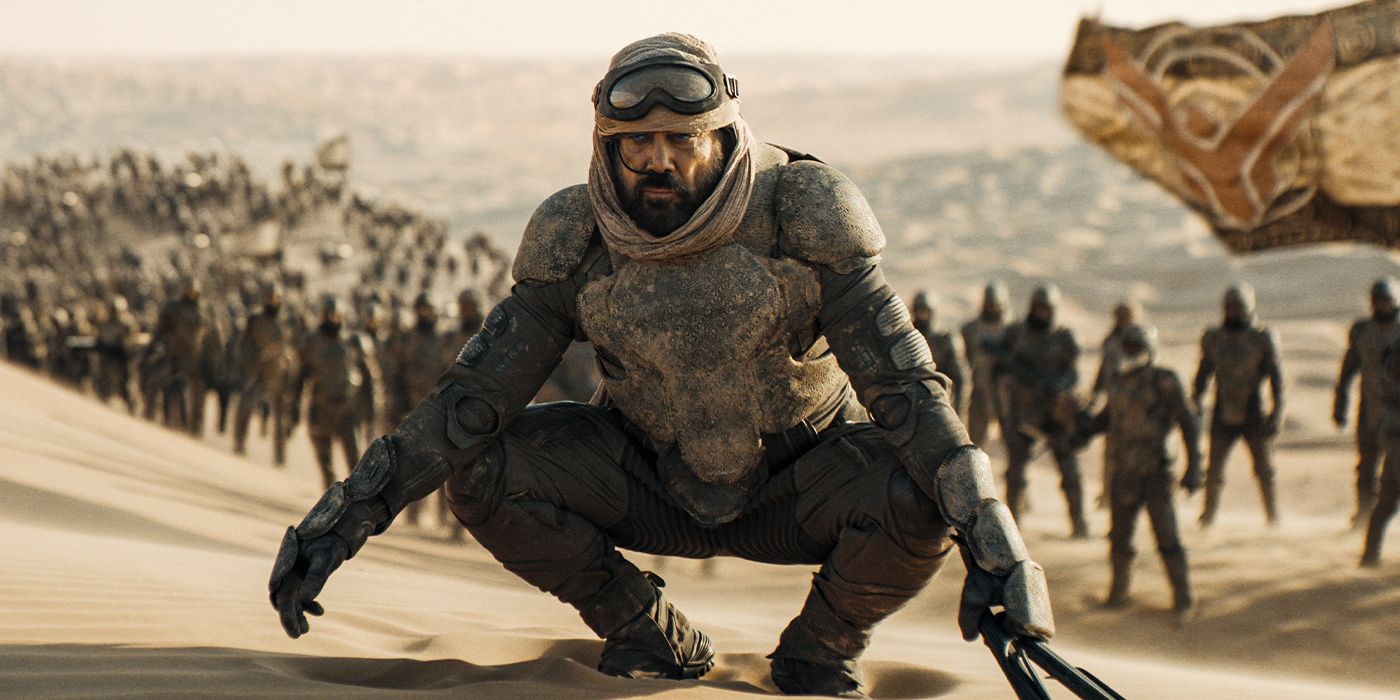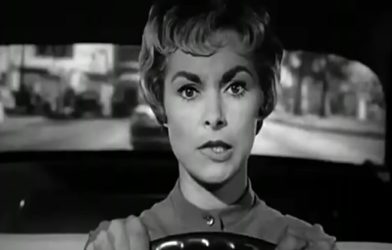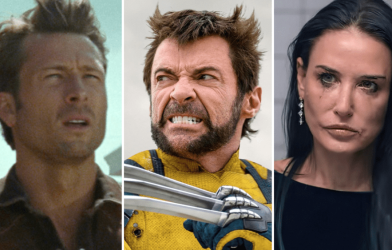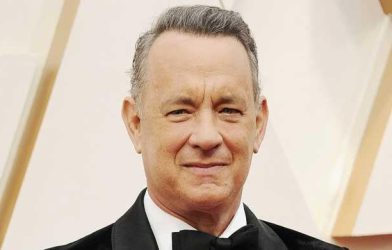The science fiction genre has been one of the most consistently thrilling to explore throughout the history of cinema. The way a visual medium like film can depict futuristic worlds or alternate realities means that almost anything that can be imagined can be depicted on-screen. Since the silent era, filmmakers have been using the medium to their advantage, commenting on humanity’s present and hypothesizing about its future through the science-fiction genre.
There are countless great sci-fi movies that have been released since the birth of cinema as an art form, and it’s ultimately futile to try and name every single amazing one. There are simply too many top sci-fi movies, and it’s a genre that’s still thriving, with new potential classics released seemingly every year. The following are among the best of the best from the sci-fi genre, being classics for their entertainment value, excellent technical qualities, and historical significance, and are ranked below in order from great to greatest.
40 ‘Woman in the Moon’ (1929)
Director: Fritz Lang
The most famous sci-fi movie directed by Fritz Lang came out before Woman in the Moon (more on it a little down the line), but this 1929 shouldn’t be overlooked just because it’s his second-best science fiction film. It’s a remarkable cinematic achievement, considering it’s close to a century old, and remains an engaging film about an expedition to the moon – led by a scientist – in search of gold.
Now, given its age and premise, there are aspects here that feel more fictional than ever in a post-moon landing world, but considering Woman in the Moon predated humanity actually reaching the moon by 40 years, the sci-fi movie’s predictions were still impressive. It’s also got inventive special effects and a surprisingly well-told and dramatic story, making it one of the best – and most underrated – films of the silent era, sci-fi or otherwise.
39 ‘Electric Dreams’ (1984)
Director: Steve Barron
Perhaps feeling more like a quirky and heartfelt romantic comedy than a full-on science fiction movie, Electric Dreams does still center around an advanced computer that begins to fall for a young woman. The computer, in a sense, enters into a love triangle of sorts with the young man who purchased it, given the man also has feelings for the same woman, yet is too shy to approach her.
Electric Dreams then becomes like a sci-fi take on Cyrano de Bergerac, with the computer being Cyrano, helping a more conventional romantic partner while also having his own intense feelings of love toward a romance that can’t be. It might sound ridiculous, and Electric Dreams is kind of silly, but it’s also got a sincerity to it that makes it hard to resist. The cynical need not apply, but those open to the film’s odd charms might be it to be one of the more underrated sci-fi flicks of the ‘80s.
38 ‘Godzilla vs. Destoroyah’ (1995)
Director: Takao Okawara
Throughout the remarkably long history of the Godzilla series, the titular monster has fought many other powerful and intimidating titans. For as mighty as foes like King Kong and King Ghidorah have been, there’s an argument to be made that his most powerful enemy wasn’t even a “King,” and that it was actually Destoroyah, a monster who’s only been featured in one Godzilla film to date: 1995’s Godzilla vs. Destoroyah.
Notable for being one of the most intense, frightening, and moving films in the entire series, Godzilla vs. Destoroyahserves as a grand finale for Godzilla’s Heisei era, which comprised seven movies released between 1984 and 1995 that told a surprisingly continuity-heavy narrative spanning just over a decade. It might not be as powerful outside the context of the series/era, but it’s nevertheless one of the finest of all Godzilla films, and stands as a great work of science fiction as a result.
Godzilla vs. Destoroyah
- Release Date
- December 9, 1995
- Director
- Takao Okawara , Ishirô Honda
- Cast
- Takurô Tatsumi , Yôko Ishino , Yasufumi Hayashi , Megumi Odaka
- Runtime
- 103 minutes
37 ‘Star Wars: The Last Jedi’ (2017)
Director: Rian Johnson
There are certainly things to criticize when it comes to the most recent Star Wars movies, largely owing to the messily constructed and planned-out sequel trilogy. Yet buried within this flawed trio of films is a genuinely great sci-fi movie that itself is divisive: Star Wars: The Last Jedi. This eighth entry in the Skywalker Saga has passionate fans and vocal detractors, but that seemed inevitable, given it was directed by the guy who was behind what some people call the worst Breaking Bad episode (“Fly”) and what many call the best Breaking Bad episode (“Ozymandias”).
Star Wars: The Last Jedi brings Luke Skywalker back into the fold, taking his character in interesting directions while ultimately having him live up to his legacy by the film’s end. Other aspects of the film seem odd or disappointing at first, but all of it comes together in an interesting way by the end. It reckons with the history of Star Wars, celebrates it, and critiques it all at once, and does so while also being tremendously moving, emotionally speaking, and spectacular, from a visual standpoint.
36 ‘Forbidden Planet’ (1956)
Director: Fred M. Wilcox
Of all the science fiction movies made during the 1950s, Forbidden Planet is undeniably up there with the most iconic. It follows a crew of space travelers who go in search of another exploration party that’s been missing for years, only to make some unusual and startling discoveries during their attempted rescue/recovery mission.
It has an undeniably distinct aesthetic that’s inextricably tied to the look and feel of classic ’50s sci-fi. It’s also notable for having what’s perhaps Leslie Nielsen‘s best-known non-comedic role, given his career was rejuvenated in the 1980s thanks to starring in a range of iconic parody/spoof movies. Some may find Forbidden Planet to be a little old-fashioned and maybe even slightly cheesy by today’s standards, but it’s the aesthetics on offer here that might also prove charming to others.
Forbidden Planet
- Release Date
- March 23, 1956
- Director
- Fred M. Wilcox
- Cast
- Walter Pidgeon , Anne Francis , Leslie Nielsen , Warren Stevens , Jack Kelly , Richard Anderson
- Runtime
- 98
35 ‘Inception’ (2010)
Director: Christopher Nolan
Inception certainly was a cinematic highlight of 2010, and it had some pretty tough competition that year, too. It’s Christopher Nolanblending his affinity for action and science fiction in one, and making this blend go down smoothly with an engaging premise that’s about performing a reverse heist within a target’s subconscious, making it function well as an action/thriller movie as well as a piece of science fiction.
It’s a movie that throws tons of fairly complex ideas at the viewer in rapid succession, and so if there’s one criticism that can be thrown Inception’s way, it’s that it’s a little heavy on the exposition at times. But the action-packed scenes serve well as payoffs, and the narrative does find interesting and sometimes unexpected places to go beyond the explanatory dialogue-heavy opening act.
Inception
- Release Date
- July 15, 2010
- Runtime
- 148
34 ‘Under the Skin’ (2013)
Director: Jonathan Glazer
Those who prefer their sci-fi conventional may want to steer clear of Under the Skin, or approach it very cautiously, given it’s another strange, haunting, and unapologetic film directed by Jonathan Glazer. It’s essentially an arthouse take on a story about an alien coming to Earth, perhaps being for the 2010s what the equally bizarre and captivating The Man Who Fell to Earth was for the 1970s.
Scarlett Johansson plays the alien at the center of Under the Skin, and much of the movie is about this life form – after taking on a human appearance – stalking and capturing various men who become prey. It offers little by way of easy answers, and much of the film is up to the interpretation of the individual viewer, for better or worse (probably more better, so long as you know roughly what you’re in for).
Under the Skin
- Release Date
- March 14, 2014
- Director
- Jonathan Glazer
- Cast
- Jeremy McWilliams , Lynsey Taylor Mackay , Dougie McConnell , Kevin McAlinden , D. Meade , Andrew Gorman , Scarlett Johansson
- Runtime
- 108
33 ‘Avatar’ (2009)
Director: James Cameron
James Cameron might’ve referred to himself as the king of the world after his 1997 film Titanic swept the Oscars, but it’s perhaps more accurate to call him the king of the sci-fi genre. He’s made some of the biggest and most popular works of science fiction in cinematic history, with none being as successful (at least financially) as his 2009 film Avatar. Indeed, Avatar joins Titanic and its own sequel, Avatar: The Way of Water, as a movie that can claim to be the highest-grossing of its decade of release.
It recycles familiar tropes and story beats, but does so in a fantastical world and with breathtaking visual effects. Typical of Cameron, Avatar is also successful in blending genres to ensure it has mass appeal, with this movie being a sci-fi film, an action/adventure movie, and a romance all at once.
Avatar
- Release Date
- December 10, 2009
- Director
- James Cameron
- Runtime
- 162
32 ‘Planet of the Apes’ (1968)
Director: Franklin J. Schaffner
For as good as the reboot/prequel trilogy released throughout the 2010s was, it’s hard to top the original Planet of the Apes film from 1968, at least when judging each movie in the series on its own merits. It’s an eerie and oftentimes mysterious film, building to a fantastic conclusion that might still surprise those lucky enough to avoid knowing about it without having seen the movie.
It flips things around by having human beings be the subservient species, and forced to contend with an advanced race of apes who do indeed rule the planet they’re on. It’s not nearly as cheesy as you’d think (the sequels don’t fare quite so well), and holds up as a compelling and entertaining sci-fi/action movie with some interesting things to say about humanity and its possible future.
31 ‘District 9’ (2009)
Director: Neill Blomkamp
Though some are clamoring for a sequel that will probably never arrive (never say never, unless you can cowardly include a “probably” in there), District 9 still stands on its own as a great film regardless. It’s part mockumentary, part action movie, and part body horror, detailing what happens to an alien ship that becomes stranded over the city of Johannesburg.
It’s also packed with social commentary regarding race and how refugees are mistreated in real life, considering in this movie, it’s the aliens who find themselves in the middle of a large-scale refugee crisis. It’s thought-provoking, unique, exciting, and one of the best science-fiction movies of the 21st century so far, as well as one movie that demonstrated how 2009 was an unusually good year for the sci-fi genre as a whole.
District 9
- Release Date
- August 5, 2009
- Cast
- Sharlto Copley , Jason Cope , Nathalie Boltt , Sylvaine Strike , Elizabeth Mkandawie , John Sumner
- Runtime
- 112
30 ‘Stalker’ (1979)
Director: Andrei Tarkovsky
One of the most acclaimed films of 1979, Stalker is also among the best-known titles in Andrei Tarkovsky‘s filmography. It follows three men who are trying to find a mysterious location known only as the Zone, as it’s rumored to grant great power to anyone who can locate it. Stalker feels less focused on the narrative necessarily, as its status as an arthouse science fiction movie means it’s more concerned with exploring abstract themes and providing a unique (in this case, also eerie) mood.
It unfolds in a way that’s very slow, but also surprisingly absorbing. It’s an intensely psychological sort of science fiction, exploring the minds of its characters more so than putting them in a series of exciting set pieces or action scenes. It’s the kind of approach to sci-fi that might not be for everyone, but it is undoubtedly interesting.
Stalker
- Release Date
- May 25, 1979
- Director
- Andrei Tarkovsky
- Cast
- Alexander Kaidanovsky
- Runtime
- 162 minutes
29 ‘Moon’ (2009)
Director: Duncan Jones
One of many great science-fiction movies released in 2009, Moon is about one man dealing with isolation while being the sole person at a manufacturing facility on the Moon. Things take a turn into the unexpected as he’s about to return to Earth, though, throwing the film’s events into an entirely new direction.
The less said about the rest of Moon, the better, but it’s fair to say that it’s certainly engaging and surprising in all the best ways. It’s also a showcase for the talents of Sam Rockwell, given he maintains a compelling presence on-screen, even though he doesn’t really have any other actual actors to appear alongside, and act with, and Moon undoubtedly solidifies Rockwell as one of the best and most underrated actors working today.
Moon
- Release Date
- July 10, 2009
- Director
- Duncan Jones
- Runtime
- 97 minutes
28 ‘Ex Machina’ (2014)
Director: Alex Garland
Before taking a turn into horror by directing movies like Annihilation and Men, Alex Garland had his directorial debut with the sci-fi film Ex Machina. It’s a unique look at artificial intelligence, revolving around a series of experiments in a remote location with a new, unnervingly smart robot, the creator of said technology, and a young coder who’s won a competition to visit said location.
It’s an eerie and engaging look at familiar science-fiction tropes and ideas, presenting things that viewers might have seen before in ways that are confined, realistic, and eye-opening. It’s small-scale, personal science-fiction done right, and though it’s not particularly old, it feels like the kind of movie where it’s safe to say it will age well, and continue to hold up in years to come.
Ex Machina
- Release Date
- April 24, 2015
- Director
- Alex Garland
- Runtime
- 108 minutes
27 ‘Minority Report’ (2002)
Director: Steven Spielberg
Minority Report is set in a future where surveillance has become so widespread and powerful that the crime/justice landscape has completely changed. Violent crimes can now be predicted before they even happen, leading to people being arrested and charged for crimes they didn’t actually commit, but were ultimately going to commit, or so those in the business of “Precrime” say.
It’s an uneasy and thought-provoking premise, and was explored in a way that ensured Minority Report ranked among the best movies of 2002. It’s getting on in years, but what it has to say still feels relevant and unnerving, and time will ultimately tell how relevant it’ll continue to feel, and how unsettling its premise will feel for viewers even further in the future. Undoubtedly, it’s one of the very best sci-fi/thriller movies Steven Spielberg has ever directed.
26 ‘Interstellar’ (2014)
Director: Christopher Nolan
While Interstellar isn’t Christopher Nolan’s only great science-fiction movie, it might be his most pure sci-fi effort, given Inception‘s action-heavy nature and Tenet feeling like an espionage thriller with sci-fi elements. Interstellar‘s also one of his longest movies, making it a true sci-fi epic in every sense of the word.
It centers on a group of astronauts who explore space through a wormhole, as humanity is in danger on Earth and may need to find a new planet to live on. On the technical side of things, Interstellar is spectacular, with amazing visual effects and a phenomenal Hans Zimmer score. It’s a long but rewarding film, and in contrast to some science-fiction, also contains a surprising amount of heartfelt – maybe even sentimental – emotion.
Interstellar
- Release Date
- November 7, 2014
- Runtime
- 169 minutes
25 ‘Invasion of the Body Snatchers’ (1978)
Director: Philip Kaufman
It’s rare for an already good movie to get a remake that’s equal in quality or even better, but 1978’s Invasion of the Body Snatchers is one of those rare movies. It’s longer and a little darker than the 1956 original, though both center on a unique alien invasion where the invaders replace human beings with duplicates that mirror individuals physically, but not emotionally.
It’s also notable for having a very strong cast, with Donald Sutherland being top-billed, and icons of the sci-fi genre – including Star Trek‘s Leonard Nimoy and a very young Jeff Goldblum – included in the cast. It’s absolutely worth watching the original, too, but this might be one case where the second go-around was slightly better.
Invasion of the Body Snatchers
- Release Date
- December 22, 1978
- Director
- Philip Kaufman
- Runtime
- 115
24 ‘Solaris’ (1972)
Director: Andrei Tarkovsky
One of the best Russian language movies of all time – Solaris – also happened to be directed by one of the best Russian filmmakers of all time: Andrei Tarkovsky. It’s a slow and dense sci-fi movie, largely taking place on a space station a psychologist is sent to, as all who live on there have fallen into an inexplicable state of emotional distress.
Tarkovsky’s a filmmaker who was known for taking his time, so viewers should be prepared for Solaris to have a fairly methodical pace, to put it lightly. Pacing-wise, it makes the somewhat comparable 2001: A Space Odyssey feel like a John Wick movie, but patient sci-fi fans will likely be rewarded with the unique atmosphere and intense philosophical questions found in Solaris.
Solaris (1972)
- Release Date
- May 13, 1972
- Director
- Andrei Tarkovsky
- Cast
- Donatas Banionis , Natalya Bondarchuk , Jüri Järvet , Vladislav Dvorzhetskiy
- Runtime
- 166 minutes
23 ‘The Day the Earth Stood Still’ (1951)
Director: Robert Wise
Unlike the case with Invasion of the Body Snatchers, The Day the Earth Stood Still is one classic 1950s sci-fi movie where the original trumps the remake. Viewers are better off going back further into the past – to 1951 instead of 2008 – for this sci-fi story, which follows an alien coming to Earth, accompanied only by a robot, claiming he has an important message for the human race.
It’s interesting for its look at an alien visitation that’s not a traditionally violent or invasive one, and for having themes that can be linked to the Cold War, and the general anxiety around nuclear weapons. Many sci-fi films from the 1950s and 1960s have this sort of subject matter, but few explore it as compellingly as The Day the Earth Stood Still.
22 ‘Arrival’ (2016)
Director: Denis Villeneuve
Denis Villeneuve wasn’t always closely associated with the sci-fi genre, as before 2016, he mostly specialized in dramas, psychological thrillers, and crime movies. That’s seemed to change since 2016’s Arrival, as the next year he was behind Blade Runner 2049, and then directed 2021’s Dune as well as 2024’s Dune: Part Two. All of these have shown that as far as modern-day filmmakers go, few are making science fiction movies quite as well as Villeneuve.
Arrival centers on a mysterious alien craft that lands on Earth, with the U.S. Army employing a linguist to try and communicate with the beings, and find out why they’ve visited. It’s another “aliens coming to Earth” movie that certainly isn’t an action movie, instead using its sci-fi premise to comment on things like grief, belonging, and humanity’s space within the universe.
Arrival
- Release Date
- November 11, 2016
- Director
- Denis Villeneuve
- Runtime
- 116 minutes
21 ‘Dune: Part Two’ (2024)
Director: Denis Villeneuve
Speaking of Denis Villeneuve, he continued his dominance over the science fiction genre into the 2020s with what already feels like a near-perfect duology: Dune (2021) and Dune: Part Two (2024). The former sets the stage expertly, establishes key characters, and then features a dramatic event that changes the course of the whole story, and propels certain characters into more complex and dangerous situations come Part Two.
Dune: Part Two did need 2021’s Dune to hit as hard as it did, but it nevertheless feels like the more impressive achievement because it perfectly built upon what it had, and then exceeded the first film in terms of quality. It’s a science fiction epic that will likely endure as an example of how best to adapt a wide-scale and widely beloved piece of literature, and it has so much going on that it’s easy to imagine it (and the first movie) being continually rewatchable for years to come.
Dune: Part Two
- Release Date
- March 1, 2024
- Director
- Denis Villeneuve
- Runtime
- 166 minutes

